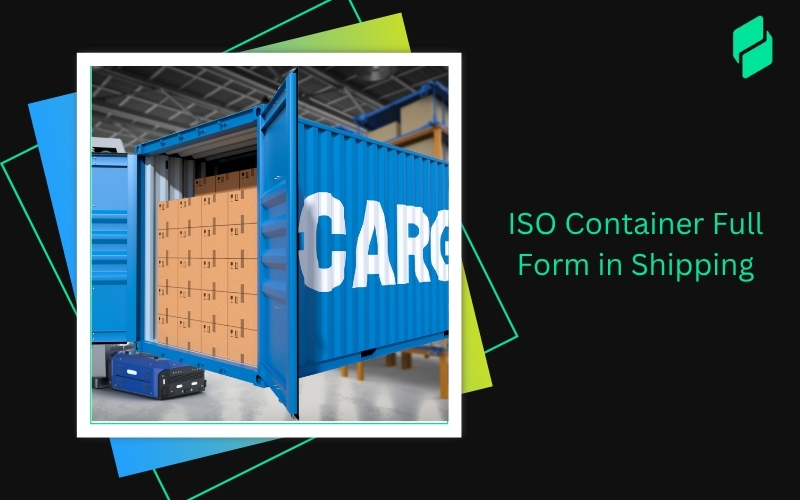Optimize your business: use unlimited savings with Pazago fulfilled now!
Get Started ->When it comes to international trade, proper documentation is crucial for the smooth movement of goods across borders.
Importers and exporters must navigate a variety of shipping documents to ensure compliance with customs regulations and avoid delays. These documents serve as proof of transactions, ownership, and compliance, and they play a critical role in securing shipments, facilitating customs clearance, and minimizing costs.
In fact, the reports suggest that poor document handling can increase shipping times significantly, leading to unnecessary delays and additional expenses.
In this blog, we’ll explore the essential shipping documents every importer and exporter should be familiar with and how understanding these documents can optimize global trade operations.
The Importance of Proper Documentation in Shipping

Proper documentation handling is one of the most crucial aspects of international shipping. Accurate and timely shipping documents ensure that goods move smoothly through customs, avoid unnecessary delays, and comply with the laws of both the exporting and importing countries.
Missing or incorrect paperwork can lead to shipment hold-ups, penalties, or even confiscation of goods. By managing shipping documents properly, importers and exporters not only simplify the process but also protect themselves from costly mistakes.
Efficient documentation ensures that goods are cleared through customs on time, shipments reach their destinations without complications, and trade operations remain cost-effective and compliant with regulations.
Essential Documents You Can't Afford to Miss

Global trade depends on accurate and timely documentation to keep everything running smoothly. Knowing which documents are required and how they work can mean the difference between efficient shipments and costly delays.
1. Commercial Invoice
The Commercial Invoice is a critical document in international shipping, acting as an official proof of sale between the exporter and importer. It contains essential details like product descriptions, quantities, pricing, and shipping terms.
This invoice is required by customs authorities to calculate duties and taxes, and any errors or omissions can cause delays, additional fees, or even shipment rejections. Accuracy is crucial to avoid complications in international trade.
- Serves as the official receipt for the transaction
- Used by customs to determine applicable duties and taxes
- Must include product descriptions, quantities, and values
- Contains buyer and seller contact information for verification
- Shipping terms and payment methods should be clearly outlined to avoid misunderstandings
2. Packing List
A Packing List provides an itemized breakdown of all goods included in a shipment. It details the dimensions, weight, and type of packaging for each item, making it easier for both customs authorities and logistics providers to handle your shipment correctly.
A well-prepared Packing List can prevent potential disputes or delays by giving everyone involved (carriers, forwarders, and customs officials) a clear understanding of what’s in each package.
- Lists the contents and packaging details for each shipment
- Assists carriers in planning space allocation and handling requirements
- Serves as a reference for customs to verify declared items
- Minimizes disputes by detailing the exact shipment contents
- Ensures smoother communication between shippers and logistics partners
3. Bill of Lading (BOL)
The Bill of Lading is one of the most important documents in international shipping. It serves as a contract between the shipper and the carrier, confirming that the carrier has received the goods in good condition and is responsible for their delivery.
The BOL also acts as proof of ownership and can be transferred to a third party, making it a critical document for ensuring the goods are delivered to the right person. Without a valid BOL, a shipment cannot be released or delivered, leading to potential delays.
- Acts as a contract between the shipper and carrier
- Serves as proof of receipt and ownership of goods
- Essential for customs clearance and delivery confirmation
- Can be negotiable, allowing transfer of ownership during transit
- Includes detailed shipping instructions, destination, and handling requirements
Helpful read - How To Make Bill Of Lading? Best Tips, Simple Guide
4. Certificate of Origin
A Certificate of Origin verifies the country where the goods were manufactured or produced. This document is particularly vital for determining whether a shipment qualifies for preferential treatment under free trade agreements.
Customs authorities use it to calculate tariffs and make sure the goods meet specific import regulations. Failure to provide an accurate Certificate of Origin can result in higher duties, penalties, or a refusal of entry at the destination port.
- Confirms the original manufacturing location of the products
- Helps customs determine applicable tariffs and trade incentives
- Required for many free trade agreements to ensure compliance
- Reduces the risk of higher taxes or shipment rejection
- Often issued or certified by a local chamber of commerce
5. Import/Export Customs Declaration
A Customs Declaration is a formal statement submitted to the relevant authorities, detailing the nature, quantity, and value of goods being imported or exported. This document enables customs officials to calculate duties, taxes, or fees and assess whether the shipment complies with regulations in the country of origin or destination. Accurate and timely completion of this declaration is essential to avoid shipment delays, penalties, or fines.
- Lists the type and quantity of goods being shipped
- Used by authorities to determine applicable duties and taxes
- Requires precise information to prevent delays or legal issues
- Must align with data on invoices and packing lists for consistency
- Critical for maintaining compliance in cross-border transactions
6. Export Packing List
The Export Packing List is a detailed document that outlines the packaging of each item in the shipment, including the dimensions, weight, and the type of packaging used. It provides a clear breakdown of the shipment, helping customs officials and the carrier efficiently process and inspect goods. This document ensures that everything is accounted for, minimizing the risk of discrepancies or errors during the shipping process.
- Details the packaging and specifications of each item in the shipment
- Used by customs to verify shipment contents during inspection
- Helps freight forwarders and carriers handle the goods appropriately
- Important for resolving any disputes between the shipper and customs
- Aids in ensuring that all items are delivered in proper condition
7. Air Waybill (AWB)
An Air Waybill (AWB) is a contract of carriage between the shipper and the airline for goods being transported by air. Unlike a Bill of Lading, the AWB is non-negotiable and serves as a receipt for the goods once they are handed over to the airline.
It includes vital information about the shipment, such as the flight details, sender and recipient information, and item descriptions. The AWB ensures that goods are transported efficiently and that all parties involved are on the same page.
- Serves as a receipt and proof of shipment for air transport
- Includes key shipment details such as sender, recipient, and flight information
- Non-negotiable, unlike a Bill of Lading
- Required for customs clearance and tracking of air freight
- Provides vital information for handling, delivery, and potential claims
Also read - Role And Importance of AWB In International Shipping
8. Letter of Credit (LC)
A Letter of Credit is a crucial financial document that guarantees payment from the buyer’s bank to the seller upon fulfilling the terms outlined in the agreement. It is often used in international trade to mitigate the risks associated with cross-border transactions.
The LC provides security to both the exporter and importer by ensuring that the seller will be paid once the goods are shipped and the proper documentation is presented. This document is typically irrevocable, meaning it cannot be altered without the consent of all parties involved.
- Guarantees payment from the buyer’s bank to the seller upon fulfillment of terms
- Reduces risk for both buyer and seller in international transactions
- Specifies conditions under which payment will be made, including required documents
- Often used when the buyer and seller have limited trust or are in different countries
- Ensures payment security and supports smooth transactions for both parties
9. Insurance Certificate
An Insurance Certificate is issued by the insurance company to confirm that the goods being shipped are covered under an insurance policy. This document provides peace of mind to both the exporter and the importer by outlining the coverage in case of damage, loss, or theft during transit.
It specifies the type of coverage, the insured value, and any conditions or exclusions that may apply, helping protect both parties from unforeseen financial losses during international shipping.
- Confirms that the shipment is insured against potential loss or damage
- Specifies the coverage amount and type of insurance (e.g., all-risk or specific coverage)
- Provides protection to both the exporter and importer during transit
- Helps resolve disputes if goods are damaged or lost during shipping
- Often required by buyers or financial institutions to mitigate risk
10. Proforma Invoice
A Proforma Invoice is an initial, estimated invoice sent to the buyer before the actual shipment. It is used to provide the buyer with details about the products, their prices, and shipping terms, and helps the buyer prepare the necessary financial arrangements or apply for an import license.
Unlike a commercial invoice, which serves as a final bill of sale, a Proforma Invoice is often used for customs clearance and securing financing prior to shipment.
- Provides an estimate of the goods and their total value before shipment
- Helps the buyer arrange financing and secure necessary licenses
- Used for customs purposes to obtain import approval or permissions
- Contains detailed information about the products, including descriptions, quantities, and prices
- A non-binding document that offers a preliminary view of the transaction
You might also like - Important Documents Required for Export
How Pazago Simplifies Shipping Documentation for Efficient Global Trade

Pazago simplifies the complexities of international shipping by offering a comprehensive platform that manages all your essential shipping documentation with ease. With Pazago, exporters and importers can ensure that every required document is accurately prepared, organized, and submitted in time, reducing the risk of delays or errors during customs clearance and transit.
Here’s how Pazago handles key shipping documentation:
- Quality Inspections: Pazago makes it easier to handle quality inspections, ensuring your products meet global standards and are fully prepared for export. This helps minimize the chances of delays and rejections when your goods arrive.
- Affordable Logistics: Pazago streamlines cross-border shipping routes, minimizing delays and enhancing delivery timelines, allowing you to manage shipping costs more effectively.
- Centralized Document Management: Store and manage all essential documents such as commercial invoices, packing lists, and bills of lading in one secure, easily accessible platform, reducing the risk of misplaced paperwork.
- Real-Time Shipment Tracking: Track your shipments in real-time and ensure that all associated documents are up to date, keeping you informed every step of the way and preventing any shipping disruptions.
- Fast, Secure Payments: Simplify the payment process with secure, fast transactions, helping you stay compliant with international payment requirements and ensuring your goods are delivered on time.
Pazago’s integrated approach to shipping documentation ensures that businesses can focus on growth while it handles the complexities of global trade and logistics, making cross-border transactions smoother and more efficient.
Experience how Pazago can simplify your global trade operations by optimizing documentation and tracking shipments and managing line logistics. Schedule a demo today and see the difference!
Conclusion
Effective management of shipping documents is crucial to the success of international trade. By ensuring that all required documents are accurate and submitted on time, you can avoid costly delays, fines, and disruptions.
Proper documentation not only ensures smooth customs clearance but also fosters trust with customers and partners. With the right tools, exporters and importers can optimize their processes and stay ahead in the competitive market.


.png)








